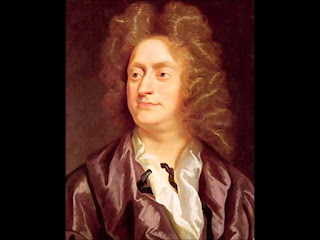Vocal Music
- Father of Heaven, Whose Love Profound – Healey Willan (1880-1968)
- God Be in My Head – H. Walford Davies (1869-1941)
Instrumental Music
- Allein Gott in der Hőh – Andreas Armsdorff (1670 –1699)
- Christus, der ist mein Leben – Johann Pachelbel (1653-1706)
- Allein Gott in der Hőh – Johann Sebastian Bach (1685-1750)
Congregational Music (all hymns from The Hymnal 1982 with the exception of those marked “R” which are from Renew.)
- Hymn 362 - Holy, holy, holy (NICEA)
- Hymn 321 - All glory be to God on high (ALLEIN GOTT IN DER HŐH)
- Hymn 371 - Thou, whose almighty word (MOSCOW)
- Hymn 295 - Sing Praise to our Creator (CHRISTUS, DER IST MEIN LEBEN)
- Hymn R37 - Father, we love you (GLORIFY YOUR NAME)
- Hymn 368 - Holy Father, great Creator (REGENT SQUARE)
- Canticle 13 - Glory to You (John Rutter)
Trinity Sunday
I understand that priests hate to preach on Trinity Sunday, for trying to preach on the mystery of the Holy Trinity is akin to tightrope walking, without a net, in a high wind. I mean, it's a mystery, right? As a musician, however, I love Trinity Sunday because there is a lot of great music for the day, including one of my favorite hymns, "Holy, holy, holy." I remember singing that in the Methodist Church when I was a boy on every first Sunday of the month when we had communion.
Father of Heaven, Whose Love Profound
This setting of the hymn "Father of heaven, whose love profound," using the hymn tune ANGELUS, comes from the pen of the British-Canadian composer Healey Willan. The text is a hymn to the Trinity by the 19th century British priest Edward Cooper. The tune, which is found in our hymnal for an evening hymn (hymn 23), is a 17th century tune by the Silesian composer Georg Joseph who served at the court of prince-bishop of Breslau, Poland.
Though Healey Willan composed more than 800 works including operas, symphonies, chamber music, a concerto, and pieces for band, orchestra, organ, and piano, he is best known for his church music. In 1913 he left his home in London and came to Toronto as head of the music theory department at the University of Toronto and organist and choirmaster at St. Paul's Church. From 1921 until his death he was precentor at the Church of St. Mary Magdalene. He wrote adaptations of ancient service music, hymn tunes, faux-bourdons, newly composed service music, motets, symphonies, operas, cantatas, organ works, chamber music, songs, and incidental music for plays. The Hymnal 1982 includes the Kyrie, Sanctus, Agnus Dei, and Gloria in excelsis (S 91, S 114, S 158, and S 202) from his Missa de Sancta Maria Magdalena.
God Be In My Head
Every week, at the end of the choir's rehearsal, we close with the singing of a short blessing in the form of an anthem, and the saying of compline, the service of night prayer. This year the choir has been singing this blessing from The Book of Hours, an early form of a prayer book prescribed for the monastic house at Salisbury, which was printed in London in 1514; one copy survives, at Clare College, Cambridge.
The music is by H. Walford Davies, an English composer, organist, and educator who held the title Master of the King's Music from 1934 until 1941. Davies served with the Royal Air Force during the First World War, during which he composed the Royal Air Force March Past, and was music adviser to the British Broadcasting Corporation, for whom he gave commended talks on music between 1924 and 1941. He was knighted in 1922.
As this is the last time the choir will sing before summer break, we close our season as we close our rehearsal, by singing this blessing.
Organ Voluntaries
The voluntaries this morning are all based on two of the hymns from our morning service, and they are all settings by Baroque German Composers. (The Baroque period was that period spanning from 1600-1750, ending in the death of J. S. Bach.)
The opening and closing voluntaries are settings of the Hymn of Praise we will be singing during the month of June. Hymn 421, "All glory be to God on high," is fitting for Trinity Sunday as it praises each person in the Godhead. It is also fitting to be sung in place of the Gloria, as it is a metrical setting of the canticle.
The closing voluntary is a trio by Bach, using the tune in the pedal. You'll also hear fragments of the melody in the music played on the manuals (keyboards).
The opening voluntary is also a trio, but with the melody played in canon. First you hear the melody in the right hand, then several measures later the same melody is taken up in the pedal. This is by Andreas Armsdorff, a German composer and organist. He was born in Mühlberg, a town in Southern Germany, and studied music and law. At some point in his early life he moved to nearby Erfurt where he may have studied with Johann Pachelbel.
Johann Pachelbel was the preeminent organist in South Germany at the time. In addition to his famous Canon, he wrote church music, including several volumes of organ music. The music during the Eucharist is a partita on our presentation hymn ("Sing praise to our Creator," hymn 295), one of a set of four partitas (variations) on German chorales which he wrote.




